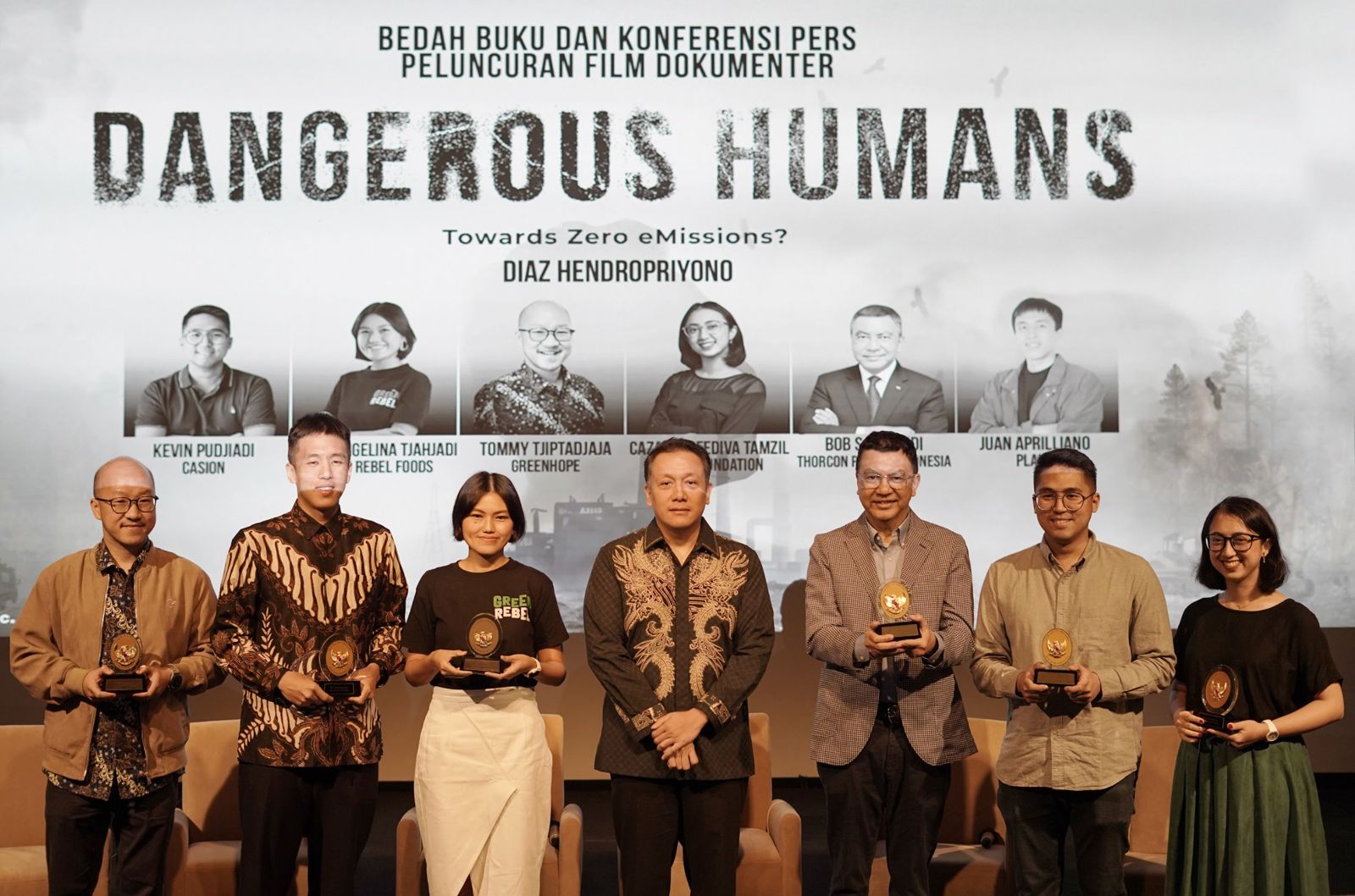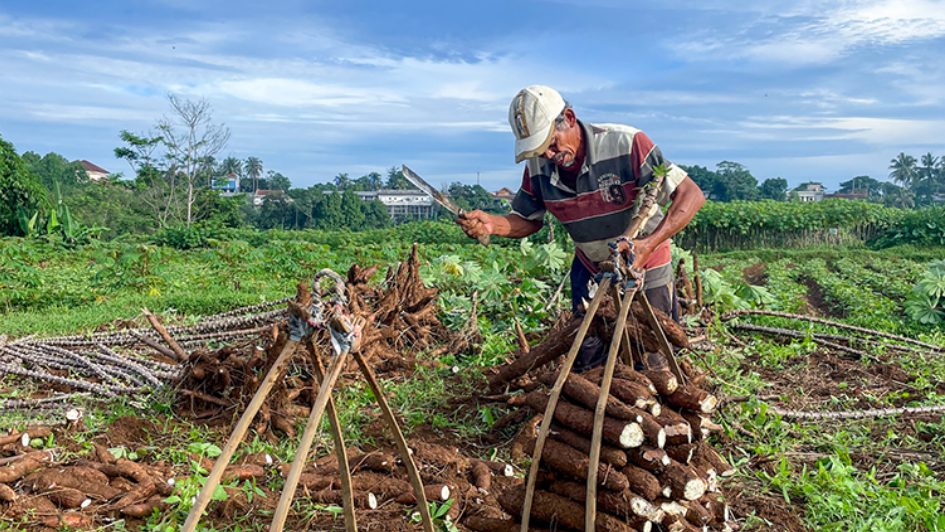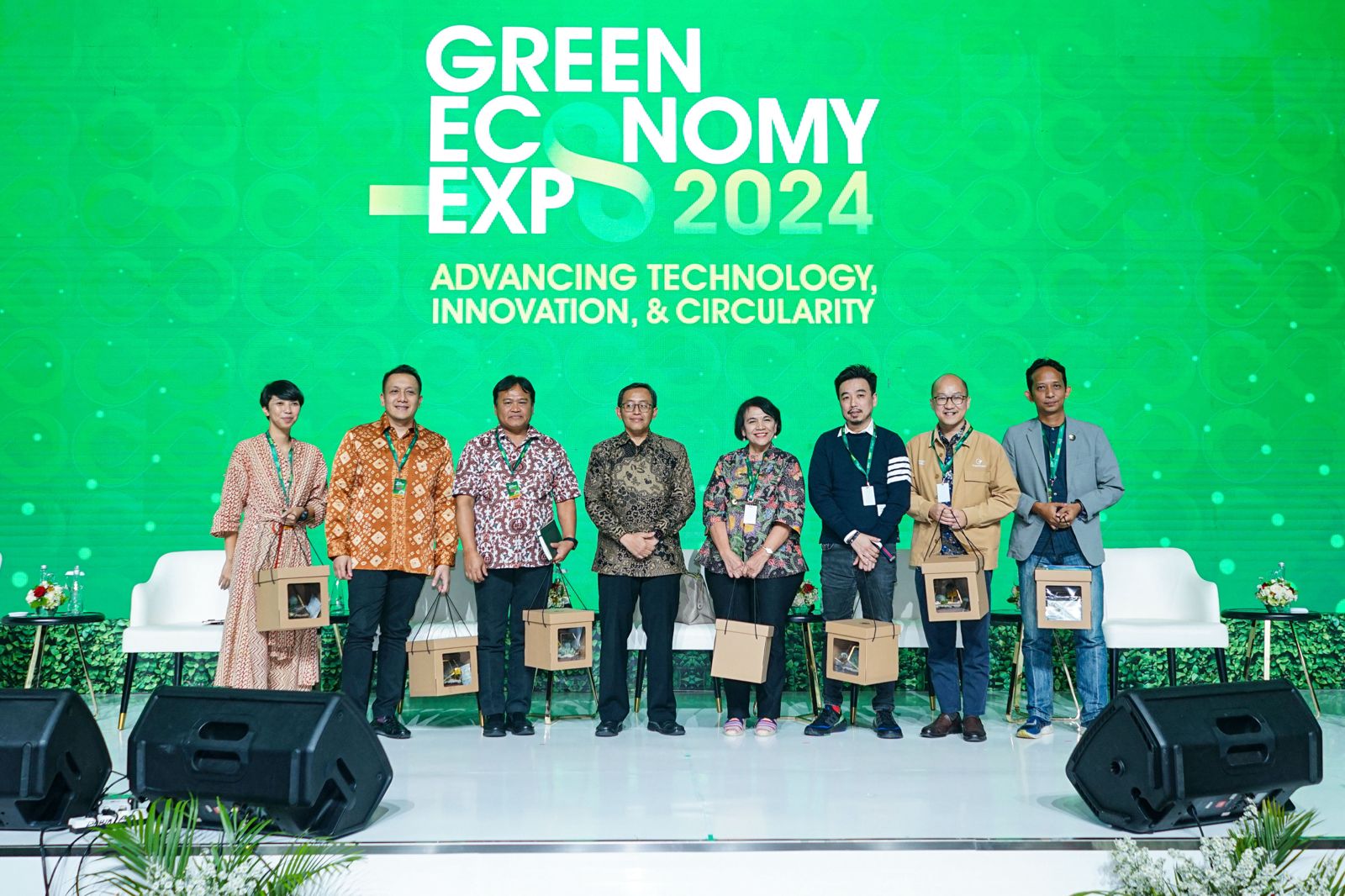Various Green Initiatives Among Corporates
Sunday, 23 February 2020Every company that is committed to implementing green initiatives in managing its business always has its own distinctiveness that distinguishes its implementation. What are they and what are their green initiatives?
Recently, more and more companies are applying the green company concept - consistently implementing the triple P principles (people, profit, planet) in creating business growth within the framework of sustainable business development. This phenomenon is encouraging, in the midst of increasingly high performance demands and increasingly sharp competition. Moreover, many of these companies use green company as a promotional tool.
As is known, the green company concept can be seen from various aspects. Starting from the preparation of the company's vision and mission, policies and strategies, business processes to marketing, it also involves partners who care about the triple P principle, so as to create a green culture in the company, including in this case the social aspects of business.
That's why every company has its own way and initiative to implement a green company based on the company's initiative and character. Pandu Setio, Senior PR & Brand Communications Manager of PT Sharp Electronics Indonesia explained that the green initiative in his company was triggered by Sharp Indonesia's concern that was observant of the existence of such a large environmental issue and an increasingly alarming condition.
As a manufacturing company, Sharp Indonesia carries this responsibility and needs to contribute back to the earth. ‘Sharp Indonesia is also aware that environmental issues cannot be resolved through government and society alone, but a large contribution is needed by the private sector,’ said Pandu. Green initiatives run by Indonesian companies are carried out, both through internal companies or between employees and externally in order to reach more of the target it wants.
For internal initiatives, Sharp as a company strives to make the company meet green standards. That is, in every employee work activity to the production process, green standards continue to be used as a reference to prioritise production processes that are energy efficient and do not pollute the surroundings. The application of green standards is not only done solely to make the production process safe, furthermore, Sharp also expects that this way can have a positive impact on employees to be more aware of the environment.
Meanwhile, green initiatives to reach external parties are held through Corporate Social Responsibility (CSR) programmes. Some CSR programmes run by Sharp Indonesia are environmental education programmes and biodiversity from an early age at elementary and high school levels to college. This means that this company in running its CSR programme by cooperating with various schools.
Likewise, modern retailers such as IKEA believe that environmental, economic and social sustainability is a natural unity in running a business to encourage a better life. ‘We believe that sustainability is not a luxury that only a few people can enjoy. We disagree that people should choose between design or function or quality or affordability or sustainability. Nor do we use sustainability to justify high prices,’ said Eliza Fazia, Country Marketing Manager of IKEA Indonesia.
IKEA also believes that sustainability and design, functionality, quality and affordability are inseparable. That's why, to protect the environment and have a positive impact on society, all IKEA materials are sourced with care. By sourcing materials from sustainable sources, IKEA applies full awareness to protect the environment and endeavours to improve people's access to clean water, decent work, and local sustainability.
Likewise, Go-Jek has various green initiatives that have been implemented through the Go-Food service. ‘Go-Jek has once again become a pioneer in the industry by announcing #GoGreener, an initiative that aims to make it easier for consumers, merchant partners, and driver partners to live an environmentally friendly lifestyle,’ said Rosel Lavina VP Corporate Affairs, Food and Merchants Go-Jek.
The first #GoGreener initiative by Go-Food is the disposable cutlery selection feature. When selecting food before going to the app's checkout page, consumers must select the buy option if they require disposable cutlery. ‘GoFood is the first and only service in Indonesia that facilitates an eco-friendly lifestyle through this feature,’ said Rosel.
The #GoGreener programme is active in several regions, especially in Go-Food's operational areas. From Go-Food's internal data, it turns out that only about 2% of customers require disposable plastic cutlery when ordering at more than 1,000 Go-Food merchant partners participating in the #GoGreener programme. ‘This is a starting point where the initiative is well received,’ said Rosel.
Then, PT Siemens Indonesia has also implemented green initiatives such as the Energy Efficiency Programme that started in 2018. The programme replaced TL (tubular lamp) lights with LED lights in Siemens' production facilities and buildings. This programme has resulted in a decrease in electricity consumption and also a reduction in hazardous waste (TL lamps contain mercury, so the management of used lamps is treated as hazardous waste).
The other is the Reducing Plastic Waste Programme which started in 2019 by reducing the use of plastics, such as Styrofoam packaging and plastic cutlery in Siemens production facilities. ‘This programme aims to encourage changes in employee behaviour to be more environmentally friendly,’ said Lilik Subiyanto, Environmental, Health, and Safety (EHS) of PT Siemens Indonesia. There is also the Recycle Waste Water Programme, which is a production waste water treatment plant for reuse in production facilities. The target is to reduce the use of clean water in the production facility area and also the installation of a Close Loop installation that will begin to be used in 2019.
Then, there are also companies that have been playing with green products since their establishment, such as Greenhope under PT Harapan Interaction Swadaya. The company, which was established in 2016, produces oxium plastic material and ecoplas (made from cassava starch). The founders are Sugianto Tandio who serves as President Director of PT Tirta Marta and Tommy Tjiptadjaja (co-founder). Tommy, who is also a social entrepreneur, is the co-founder and CEO of Greenhope.
The oxium technology was developed by Sugianto through 10 years of research, then taken over by Tommy for mass production. Currently, PT Tirta Marta and Greenhope are sister companies. Greenhope is listed as a member of the Schwab Foundation Social Entrepeneur World Economic Forum.
Oxium is an additive that is added to plastic materials so that the plastic decomposition process can be faster. Oxium reacts quickly with heat, sunlight, or oxygen so that it can be oxidised and biodegraded faster than ordinary plastic, which is about two years. ‘We have patented this technology in the US, Singapore, and Indonesia,’ says Tommy. Ecoplas is a plastic core made from cassava starch.
Currently, Greenhope produces plastics that can biodegrade in the soil. The business model is B2B. Greenhope produces the plastic core material, which consists of oxium and ecoplas. The company collaborates with approximately 50 companies from 15 countries around the world to produce finish goods. ‘Greenhope is the patent holder of Oxium in Indonesia and the only producer of Oxium plastic in Indonesia. In the rest of the world, similar technology comes from Canada, the UK, Japan,’ said Tommy.
So far, the Greenhope factory has five production machines with a production volume of 1,000 tonnes/month. ‘But, there is a difference between oxium and ecoplast. For ecoplast, what we produce is the resin. So, to make a plastic bag, it has to be 100% from cassava starch resin. Well, if oxium is just an additive that is mixed with 3-5%. So, 1 tonne of oxium can turn 33 tonnes of plastic into biodegradable,’ Tommy explained.
f course, all these green initiatives have a positive impact, not only for people and the environment, but also for the company, in the form of sustainable economic benefits. ‘This can be seen from the trust that continues to be given by consumers to date to continue using technology and solutions from Siemens that have proven quality and are environmentally friendly,’ said Lilik.
The same goes for Go-Jek. Besides speed and innovation, Go-Jek's other DNA as a company is social impact. ‘Therefore, our performance needs to be seen through the lens of social impact,’ said Rosel. As mentioned earlier, through #GoGreener for Go-Food, around 2% of customers require disposable plastic cutlery when ordering at more than 1,000 Go-Food merchant partners participating in the #GoGreener programme. This certainly adds to Go-Food's performance in creating social impact in improving the welfare of Go-Food driver partners, talents, and MSMEs. (*)
Reportage: Andi Hana Mufidah Elmirasari, Herning Banirestu, Sri Niken Handayani, and Yosa Maulana



